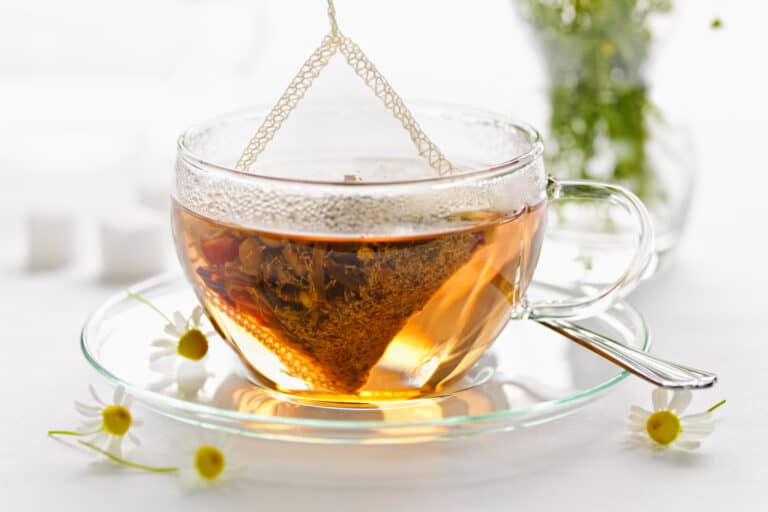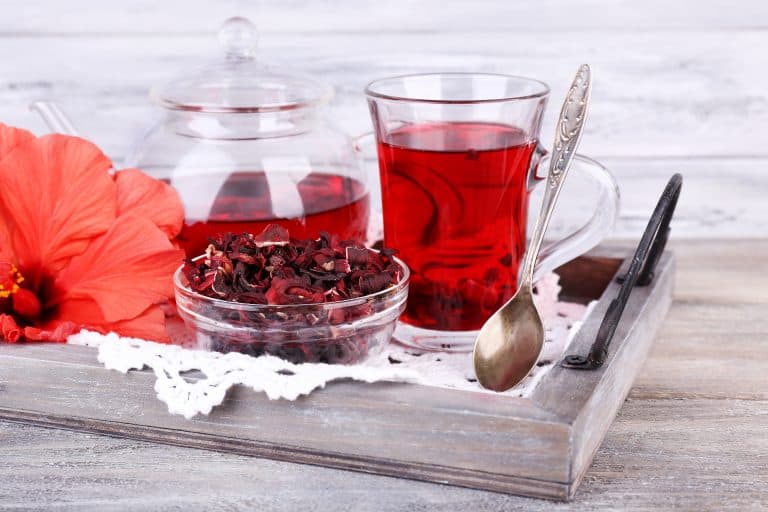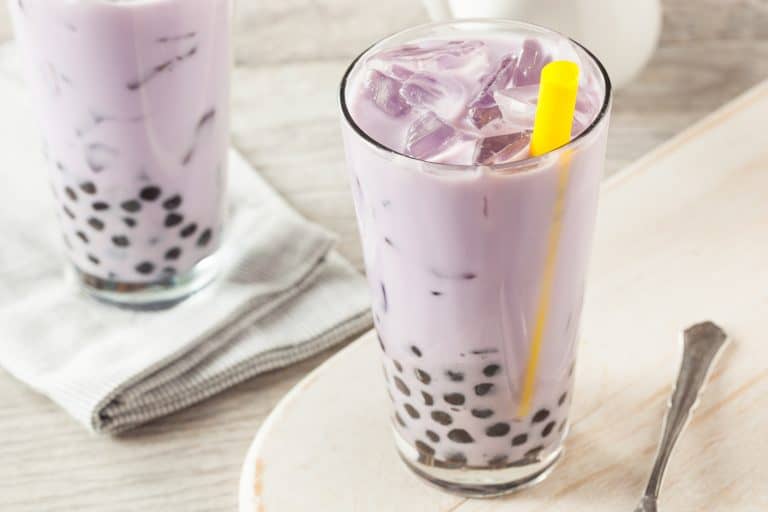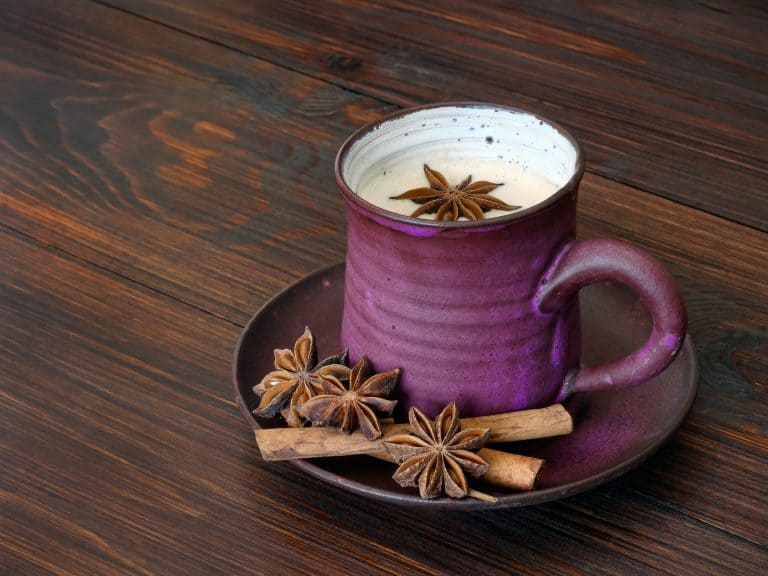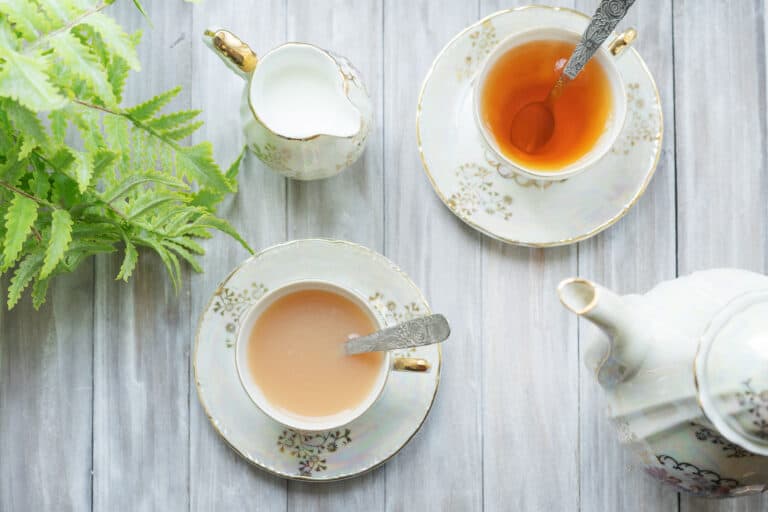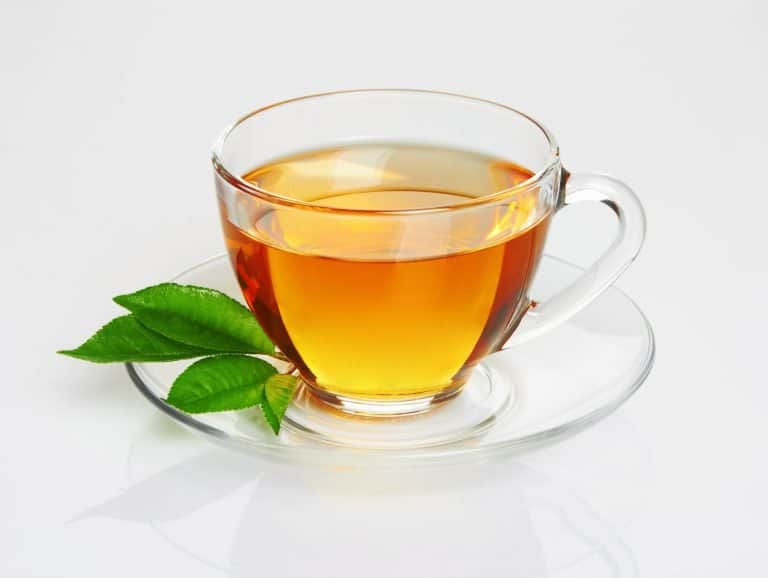Best Time to Drink Matcha Tea (Easy Guide)
Disclosure: This post may contain affiliate links, meaning I get a commission if you decide to make a purchase through my links, at no cost to you.
When is the best time to drink matcha tea? Find out with our easy guide.
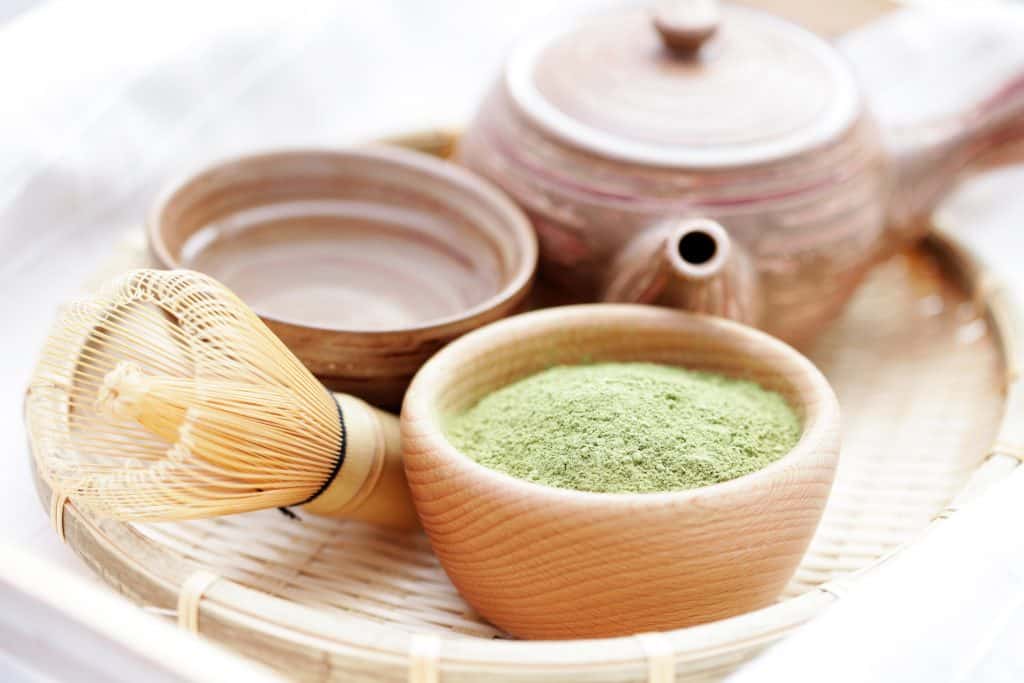
Matcha tea, a finely ground powder made from green tea leaves, has been growing in popularity due to its numerous health benefits and distinct flavor. This vibrant green tea is known for its rich antioxidant content, ability to boost metabolism, and calming effects, making it a popular choice for many tea enthusiasts. The question of when to best consume matcha tea to fully enjoy its benefits has been a topic of discussion among tea drinkers.
Starting the day with a cup of matcha tea could provide an excellent caffeine boost and an energizing alternative to morning coffee. Drinking matcha in the morning can help people stay alert and focused throughout the day. Additionally, enjoying a cup of matcha between meals, specifically a couple of hours after breakfast or lunch, allows for better absorption of its antioxidants and nutrients. Moreover, consuming matcha tea about 30 to 45 minutes after a meal could also promote digestion, as it increases digestive activity and aids in protein breakdown.
Understanding Matcha Tea
Matcha Powder
Matcha is a type of green tea powder made from finely ground green tea leaves. It has been traditionally used in Japanese tea ceremonies and is now a popular beverage for its wide range of health benefits. Due to its unique preparation process, matcha offers higher nutrient density and a more intense flavor compared to regular green tea.
Camellia Sinensis
At the core of matcha tea is the Camellia sinensis plant, a species of evergreen shrubs native to East Asia. This plant is responsible for the production of not only green tea but also other types of tea, like black and oolong tea. The specific processing methods and stages of leaf oxidation determine the final type of tea produced.
Green Tea Leaves
The green tea leaves used for matcha powder are cultivated differently from regular green tea. The plants are grown under shade for about 20-30 days before harvest, leading to higher chlorophyll levels and a vibrant green color. The leaves are then steamed, dried, and ground into a fine powder, which results in the matcha tea we know today.
Caffeine Content
Matcha tea is known for its moderate caffeine content, making it a popular alternative to coffee. On average, a serving of matcha tea contains about 35-70 milligrams of caffeine, depending on the quality and preparation. This is slightly higher than a cup of regular green tea, which typically has 25-45 milligrams of caffeine. The caffeine in matcha is believed to work synergistically with the amino acid L-theanine to improve focus and provide a calm, steady energy boost without the jittery side effects often associated with other caffeinated beverages.
Amino Acid L-Theanine
One of the defining characteristics of matcha tea is its high content of the amino acid L-theanine. L-theanine is known to promote relaxation and reduce stress, counterbalancing the stimulatory effects of caffeine. This unique combination of caffeine and L-theanine in matcha is what gives it the ability to provide a calm, focused energy boost perfect for productivity and mental clarity.
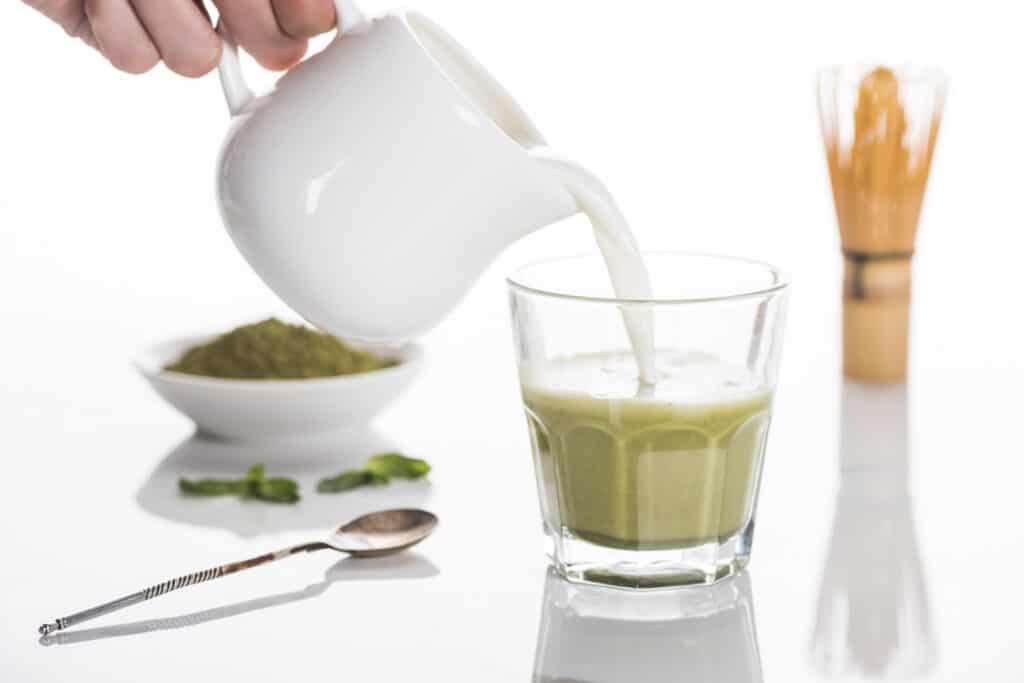
Best Times to Drink Matcha Tea
Morning Energy Boost
Drinking matcha tea first thing in the morning can provide a much-needed energy boost. As a healthier alternative to morning coffee, matcha contains caffeine that can help kickstart your day without the jitters or crashes often associated with coffee. Consuming matcha on an empty stomach can also help increase metabolism and improve focus, setting the tone for a productive day.
Midday Refreshment
During the middle of the day, matcha tea can serve as a perfect refreshment to prevent the midday slump. Around this time of the day, our energy levels tend to dip, which might hinder our focus and alertness. By enjoying a cup of matcha, not only does it provide a gentle caffeine boost, but it also contains antioxidants called catechins, which help fight off the negative effects of free radicals, keeping the body strong and revitalized.
Late Afternoon Focus
As the late afternoon approaches, it might be tempting to reach for another cup of coffee, but matcha tea can be a better alternative for maintaining focus. Unlike coffee, the caffeine in matcha is absorbed more gradually, providing a longer-lasting, steady flow of energy for sustained focus and concentration. Drinking matcha tea during the late afternoon ensures that you stay sharp and alert, without compromising your ability to wind down and relax in the evening.
Health Benefits of Matcha Tea
Weight Loss and Energy Levels
Matcha tea is known for its potential benefits in weight loss due to its antioxidant compound called EGCG, which is believed to boost metabolism and burn fat. Furthermore, matcha has a moderate amount of caffeine, which provides a natural and sustained energy boost without the jitters or crashes associated with other sources of caffeine. This increase in energy and metabolism can aid in physical endurance, making matcha a popular choice among athletes and fitness enthusiasts.
Cardiovascular Disease Prevention
Studies have suggested that the consumption of matcha tea can help reduce the risk of heart disease. The antioxidants present in matcha, particularly catechins, play a vital role in preventing the oxidation of LDL cholesterol, which can lead to the formation of plaques in the arteries. Moreover, matcha has been shown to improve blood sugar regulation, which is essential in the prevention of cardiovascular diseases.
Digestive Health and Immune Support
Matcha tea may benefit the immune system and provide digestive support due to its high content of vitamins, minerals, and antioxidants. These nutrients work together to enhance the body’s overall well-being and promote a healthy immune response. The American Journal of Clinical Nutrition has also suggested that the consumption of matcha and other green teas can help promote digestive health.
Blood Pressure Reduction
Consuming matcha tea may help lower blood pressure in individuals with high blood pressure. The catechins and other antioxidants in matcha can contribute to vasodilation, which leads to a more relaxed and open blood vessel state. This effect can result in a decrease in blood pressure and a reduced risk of more severe cardiovascular complications.
Preparing the Perfect Matcha Tea
Best Way to Make Matcha Tea
To prepare the perfect cup of matcha tea, begin by boiling water and allowing it to cool until it’s hot but not scalding (around 175°F/80°C). Sift a generous teaspoon (about 2 grams) of matcha into your tea bowl, ensuring it is a fine powder. Pour about 8 oz of the cooled hot water into the bowl, making sure not to use boiling water as it can affect the taste and quality of the tea.
Bamboo Whisk and Tea Bowls
A traditional bamboo whisk, known as a chasen, is recommended for mixing matcha tea to achieve the desired frothy consistency. Gently whisk the matcha and water in a “W” or “M” motion until a layer of soft, creamy foam covers the surface. Utilizing appropriate tea bowls, called chawan, can also enhance the overall experience, as their wide and shallow shape enables better whisking, making it easier to enjoy the tea.
Amount of Matcha and Hot Water
The quantity of matcha powder and hot water used can vary according to personal preference. For a thinner, lighter tea (usucha), it is suggested to use about 2 grams of matcha powder with 8 oz of hot water. However, if a thicker consistency (koicha) is desired, one can opt to use 3-4 grams of matcha with 4 oz of hot water, adjusting the ratio accordingly.
Remember, the taste and quality of matcha tea can be significantly impacted by the proper preparation method and the right balance between the matcha powder and hot water. Following these guidelines will ensure that you enjoy an authentic matcha tea experience.
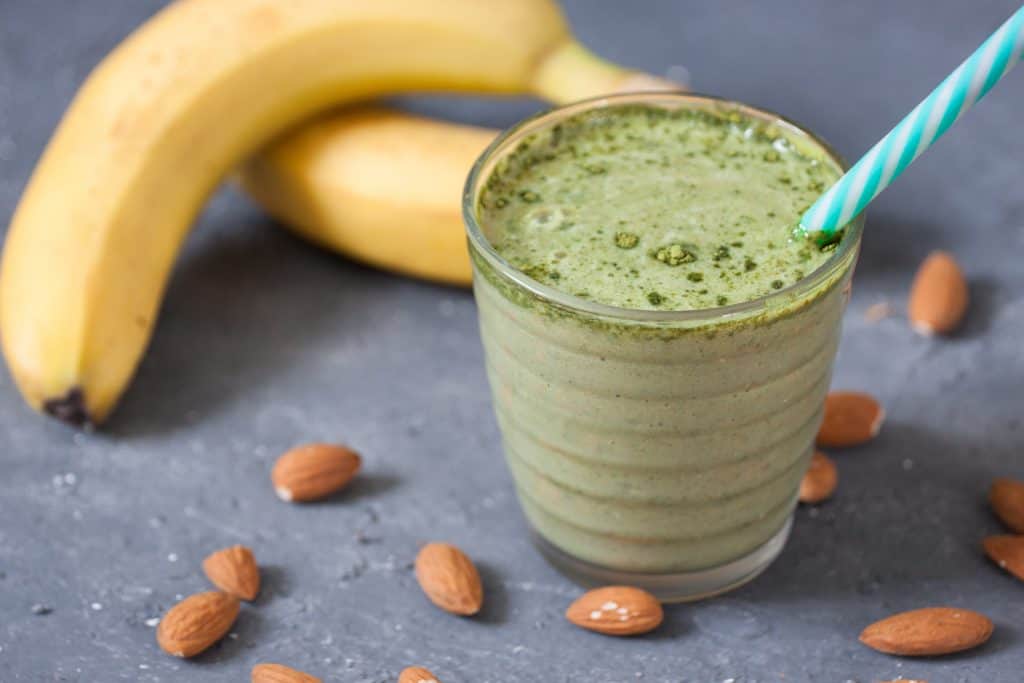
Find the recipe for this banana matcha smoothie here!
Matcha Tea Variations and Combinations
Matcha Latte
Matcha lattes have become a popular choice on many coffee house menus. They are creamy and energizing, making for an excellent alternative to a traditional cup of coffee. To make a matcha latte at home, simply whisk the matcha powder with a small amount of hot water, then top it off with steamed milk of your choice, such as coconut milk for a dairy-free option. A matcha latte is a delicious way to enjoy the health benefits of matcha in a comforting beverage.
Organic and Ceremonial Matcha
When selecting matcha, it’s essential to consider the quality of the powder. Organic matcha is an excellent choice as it guarantees that the tea leaves were grown without the use of pesticides or synthetic fertilizers. Ceremonial matcha is the highest quality of matcha, reserved primarily for traditional Japanese tea ceremonies. It features a vibrant green color, delicate flavor, and smooth texture, making it perfect for enjoying as a simple matcha tea or incorporating it into other recipes.
Iced Matcha
Iced matcha is a refreshing alternative to hot matcha tea, especially during the warmer months. To create an iced matcha, whisk the matcha powder with cold water until it dissolves completely and add ice cubes. For an even more exciting twist, try blending your iced matcha with fruits like strawberries or mangoes for a fruity flavor infusion.
Smoothies
Incorporating matcha into your smoothies is a fantastic way to boost the nutritional value and add an energy kick to your favorite recipes. To make a matcha smoothie, simply include a teaspoon of your preferred matcha powder (ceremonial or organic) in your smoothie ingredients before blending. This works well with a variety of fruits, vegetables, and healthy add-ins, such as bananas, spinach, and almond butter.
Matcha tea is a versatile ingredient that can be enjoyed in several forms, from traditional tea to lattes and smoothies. Experimenting with different variations and combinations allows you to find your favorite way to consume this powerhouse of antioxidants and nutrients.
See our complete guide to using matcha powder in smoothies
Cautions and Considerations
Caffeine Sensitivity and Pregnant Women
It is important to be aware that matcha contains caffeine, typically ranging from 25-70 mg per serving. Individuals who are sensitive to caffeine should consume matcha in moderation, as excessive intake may lead to adverse effects such as jitteriness, rapid heartbeat, and an upset stomach. Pregnant women should consult their healthcare professional before consuming matcha, as the caffeine content in matcha, although lower than in a cup of coffee, may still be a concern during pregnancy.
Iron Absorption Issues
Consuming matcha may affect iron absorption in some individuals, due to the presence of catechins. These antioxidant compounds, found in green tea, can inhibit the absorption of iron from plant-based sources (non-heme iron). This interference with iron uptake may be of concern for those with iron deficiencies or anemia. To minimize the potential impact of matcha on iron absorption, it can be helpful to consume matcha at least one hour before or after meals rich in plant-based iron sources.
Quality and Culinary Grade Matcha
When selecting matcha, it is crucial to understand the difference between ceremonial and culinary grade matcha. Ceremonial grade matcha is made from the finest tea leaves and is intended for traditional Japanese tea ceremonies. This higher quality matcha offers a smoother taste and richer color, providing an optimal matcha experience.
In contrast, culinary grade matcha is made from lower-quality tea leaves and is often intended for use in cooking, baking, and smoothies. While culinary grade matcha is more affordable, it may not provide the same depth of flavor and health benefits as ceremonial grade matcha. For those seeking the best matcha experience and maximum benefits, it is recommended to choose ceremonial grade matcha whenever possible.
Final Thoughts on the Best Time to Drink Matcha Tea
Matcha tea, with its rich antioxidant content, calming effects, and unique flavor, offers an energizing and healthier alternative to your daily cup of coffee. Not only is it beneficial for kick-starting your day, but it also serves as a refreshing pick-me-up during the midday slump and aids in maintaining focus in the late afternoon.
Matcha tea’s health benefits, such as aiding weight loss, preventing cardiovascular diseases, supporting digestive health, and reducing blood pressure, are invaluable. With its varied preparation methods, including traditional tea, lattes, iced variations, and smoothies, matcha tea allows everyone to enjoy its benefits according to their preferences.
However, it’s essential to take into account the caffeine content and potential impact on iron absorption, especially for caffeine-sensitive individuals and those with iron deficiencies.
Choosing the right quality of matcha, preferably ceremonial grade, is crucial for the optimal experience and maximum benefits.
So, why not incorporate matcha tea into your daily routine and enjoy the boost of energy and wellness it provides?
Happy Brewing!
Amanda
